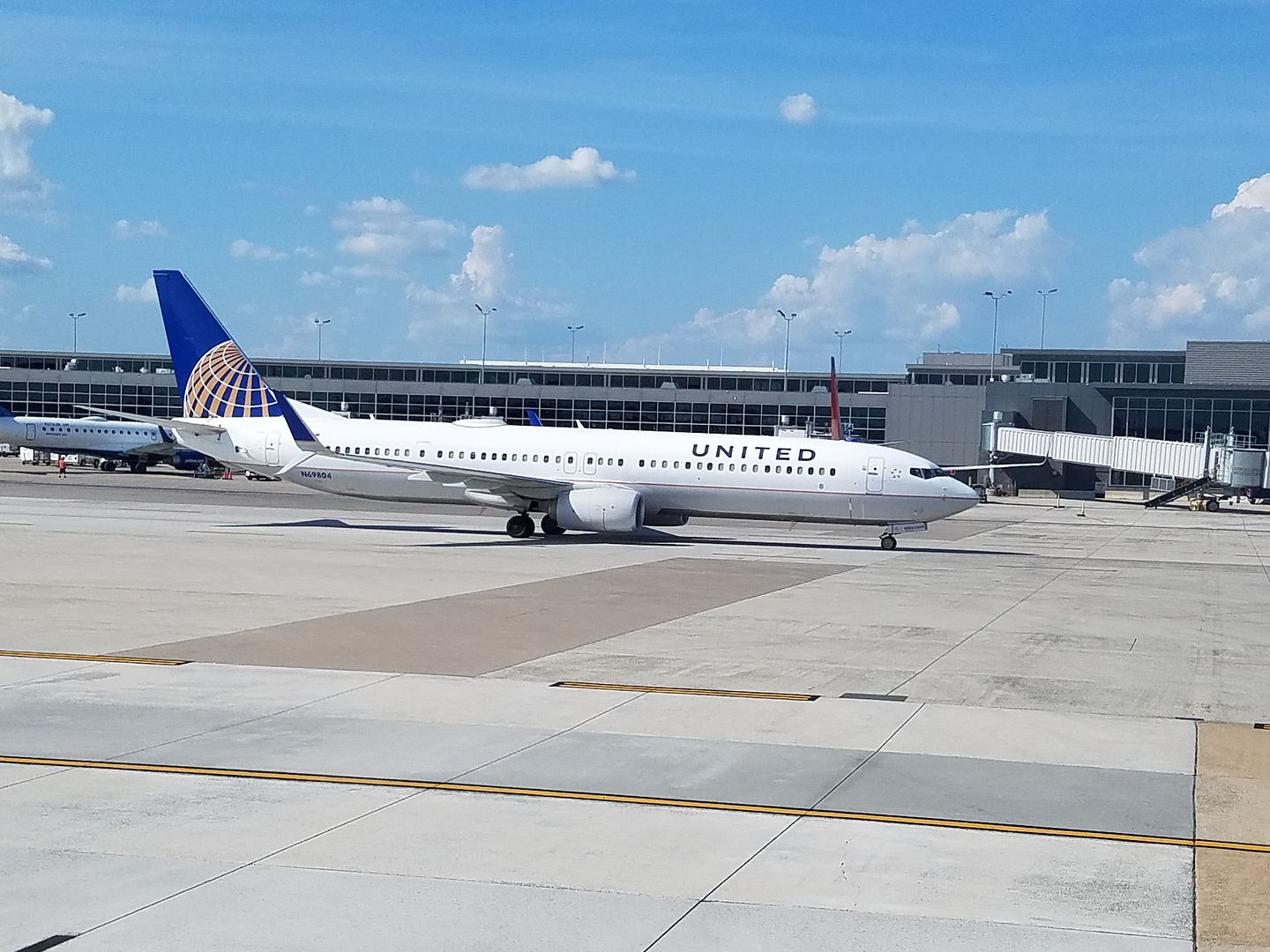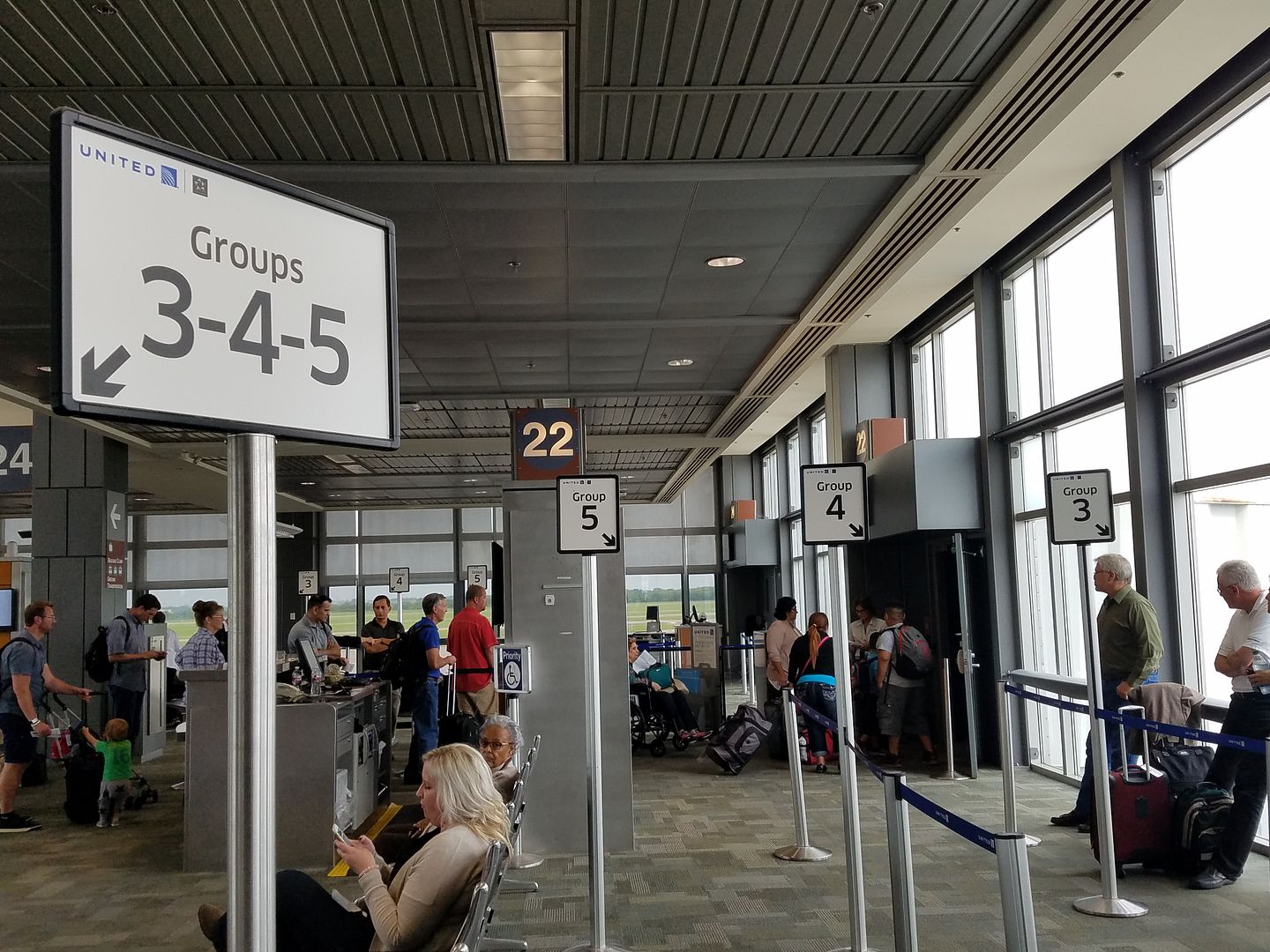Airlines have been trying to goose lagging stocks with share buybacks. Fundamentally airline stocks haven’t performed because there’s little chance of significant profit growth and spending cash to retire shares underscores that: it suggests that there’s no more profitable investment in front of the business, which suggests it’s not a strong growth play.

The buyback isn’t the cause of lagging stock, it’s a symptom of it. Although times could get tougher for United and via Bloomberg they’re rethinking their previously announced share buyback plan,
United also is rethinking its share buybacks after announcing a $2 billion repurchase plan this summer that followed a $3 billion effort from a year earlier. The pace may need to slow because of significant increases in labor expenses from several new union contracts as well as rising fuel costs, he said.
United is faced with rising costs. And they haven’t been increasing revenue. They may not be as well-positioned to spend their cash buying shares instead of investing in the business. That’s hardly a surprise.

They’re also reconsidering the aircraft they have on order — not just the previously announced deferral of 737s.
The airline may convert some of the Airbus A350-1000s to smaller long-haul models, Chief Financial Officer Andrew Levy said in an interview at United’s Chicago headquarters. United also is considering the so-called Max 10X, a stretch of Boeing’s largest 737, to replace some of the single-aisle jet orders it recently deferred as part of a cost-savings push.
…“These fleet decision are big decisions, they affect your balance sheet for a long time,” Levy, 47, said in the interview. “These are big capital decisions that you have to live with for a really long time, so you need to make sure you get it right.”
The A350-1000s could be swapped out for A350-900s or A330s.


So they should pay a dividend or reduce debt if there are few growth opportunities like every other mature industry does. This isn’t a crisis for them.
An old legacy carrier that just can not seem to get out of it’s own way. UA has not had real leadership in a very long time. It’s unions and the FA’s attitude has killed them for years and years. If it were not for the CO merger it’s planes would qualify for the Smithsonian! They ruined the CO Micronesia franchise putting their ghetto birds on.
I don’t even bother anymore
I love when companies do share buybacks with their shares at or near all-time highs.
United hurt itself big time over the last several years and they clearly lost considerable amount of business traffic/recurring traffic to their competitors (strong steady high revenue core – Oscar’s WSJ article said it all). Now even when the industry is on the upswing (primarily thanks to lower fuel costs) they are struggling to consistently meet revenue targets or outperform the airline market.
This is what happens when you treat your HVC at transactional level rather than at holistic level and have your executives show complete disregard about Pareto’s Law especially when your airline is an operational mess. Even AA has publicly stated 80% of customers only fly on them once in a given year, which indicates the enormity of the business recurring customers bring to the airlines.
United has come back a long way from the “dark days” but customers are not just going to say oh now you are better I’ll stop, drop, and roll back to you. Doesn’t work that way, once you lose a customer it is very difficult to win them back.
P.S. AA is kind of heading in the direction UA went in the eyes of their top tier customers unfortunately. Operationally not the best (not as bad as UA was), cutting a lot of benefits for EXPs without providing a meaningful differentiating enhancement, short changing on their hard/soft products (some were rolled back), not investing in revolutionizing their customer facing IT platform, increasing restrictions on significant elite benefits particularly same day flight changes, etc.
UA and AA are working hard to kill off the business. It seems the only reason to hold on to using either of them is for cheaper awards and their partners.
I have one more voucher to use on AA and then it’s back to DL for me. My travel patterns haven’t done me any favors where AAdvantage miles are concerned and I’m finally tired of trying to use an airline and route network that just don’t work for me…flights are a big part of what I should consider and what I haven’t been considering too much for far too long.
CO really killed UA’s revenue premium, and they’re going to be paying the price for years to come.